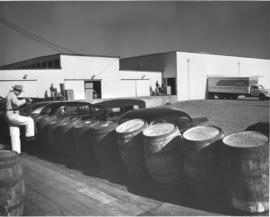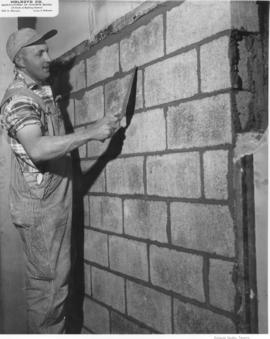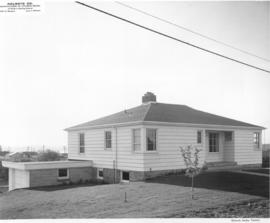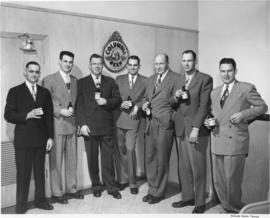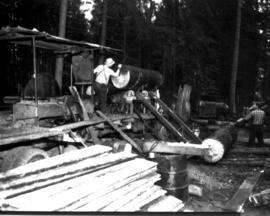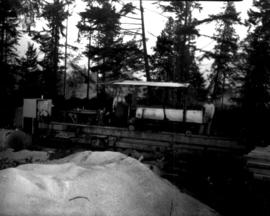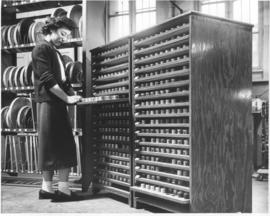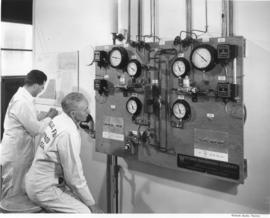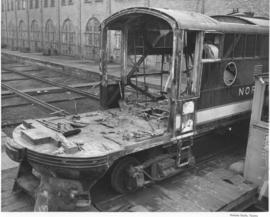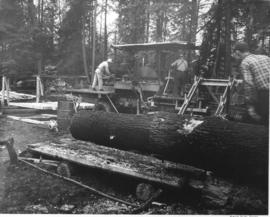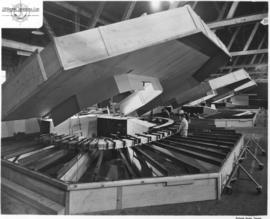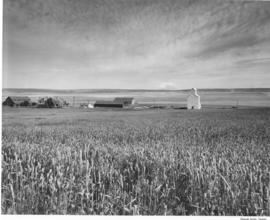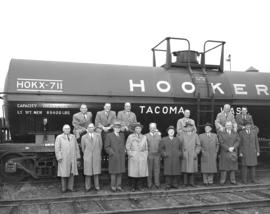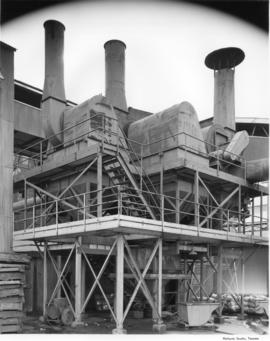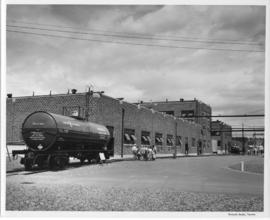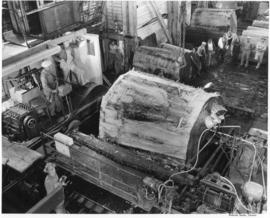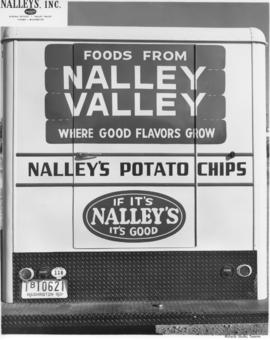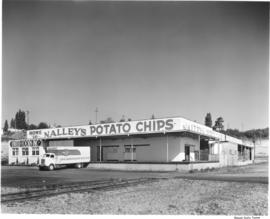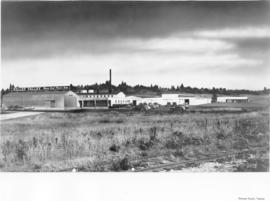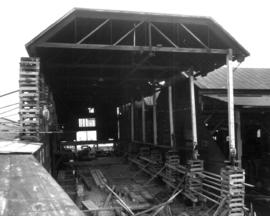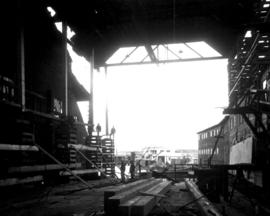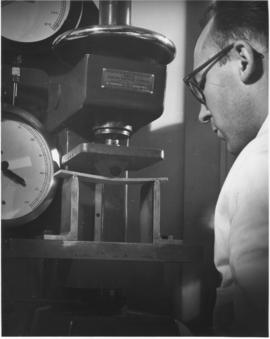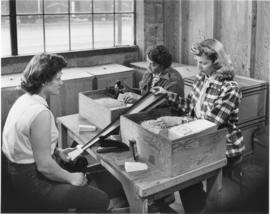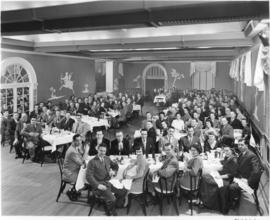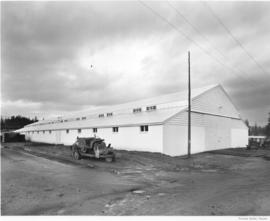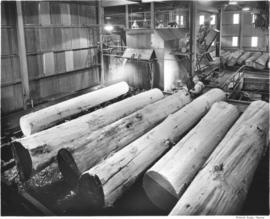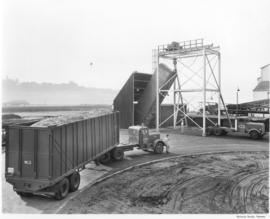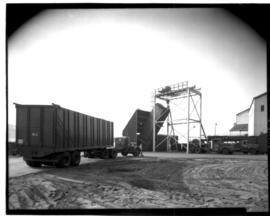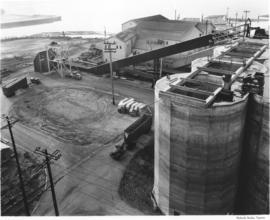Directors' Meeting at Hooker Chemical Company on Halloween, 1950. Group of men including Tacoma executive staff standing on railroad tracks next to Hooker, Tacoma, tank car. This is probably at the Hooker Co. plant at 605 Alexander Ave. Not only did the company have a dock on the Hylebos Waterway but they also had a railroad spur running through the facility to make transport of Hooker chemicals easier and more efficient. Plant manager John D. Rue is extreme left in front row, sales manager Albert Hooker, Jr., is fifth from left in front and plant superintendent A.J. Rosengarth is on the extreme right, front row. This photograph appears in the book "Salt & Water, Power & People," a short history of the Hooker Electrochemical Co., and names of the individuals are listed within. (Thomas: Salt & Water, Power & People, p. 94) (Additional information provided by a reader)
Hooker Electrochemical Co. (Tacoma); Chemical industry--Tacoma--1950-1960; Meetings--Tacoma--1950-1960; Railroad tank cars--Tacoma--1950-1960; Rue, John D.; Hooker, Albert H.; Rosengarth, A.J.;
